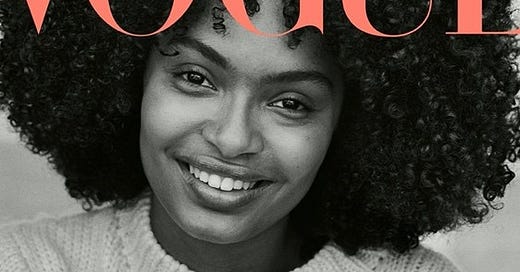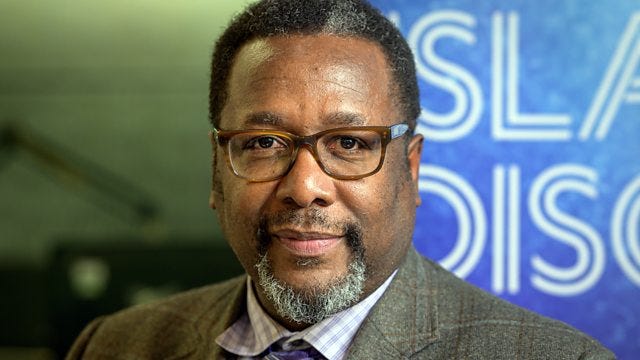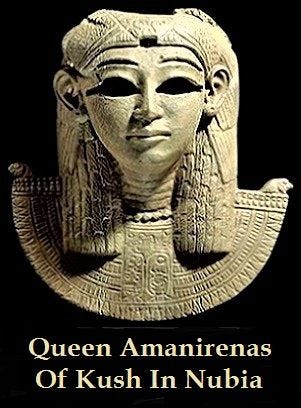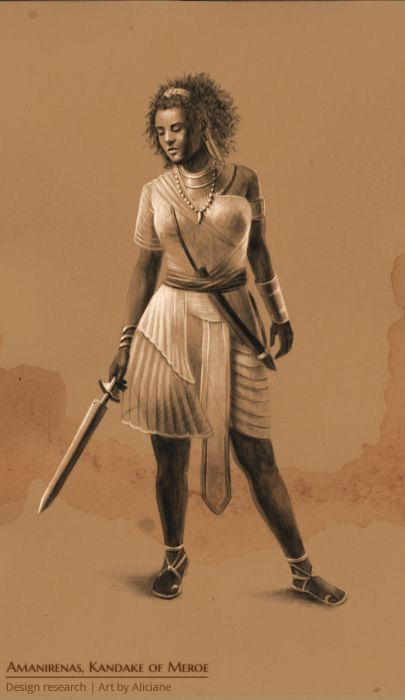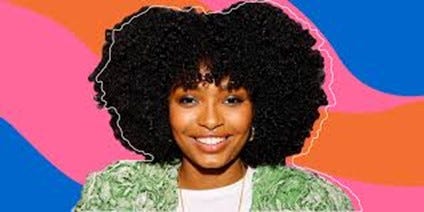Introduction
By Rena
Welcome to the 6th EmbRACE newsletter. This issue invites you to learn more about inspirational people, both past and present, from across the globe. It challenges us to explore what it really means to be an ‘Ally’; our word to ponder. You will learn that one aspect of Allyship suggests we promote the work of people of colour. Therefore, we showcase an upcoming performance by a British ballet company called Ballet Black. They were founded in 2001 in response to the lack of professional Black and Asian ballet dancers in the UK, providing dancers and students with inspiring opportunities in classical ballet. A reminder to us all that representation matters.
As we approach the busy summer months, we thank you for finding the time to read and reflect on the sections below, each written by different EmbRACE members sharing their learning during their personal anti-racism journeys. We hope that in turn, it may inspire you.
Something to listen to
What’s the context?
Eight tracks, a book and a luxury: What would you take to a desert island?
Desert Island Discs is a radio programme on BBC Radio 4. Each week a different well-known guest is featured, referred to as a ‘castaway’. The castaways are interviewed and invited to choose eight recordings (usually music), one book and a luxury item that they would take if they were to be cast away alone on a desert island. The programme plays their song choices whilst discussing their lives. This episode, featuring actor Wendell Pierce, is presented by Lauren Laverne, who took over hosting the programme in 2018.
Who’s the creator?
Wendell Pierce is an American actor who has featured in many films and TV productions, although probably best known for his portrayal of detective Bunk Moreland in The Wire; a critically acclaimed series following a team of Baltimore cops and the criminals they’re going after. Wendell is also well known for his role in Suits, in which he plays high powered attorney Robert Zane (father of Meghan Markle’s character). In addition to these high profile roles, he has a varied portfolio of previous work, spanning film and theatre (which he describes as his first love) as well as television.
What does it mean to me? (Katherine)
Stumbling across this programme, I was prompted to listen to it, mainly because I am a big fan of The Wire. Within this feature, Wendell describes his childhood in New Orleans and recalls the racism he faced growing up in the Deep South. He was raised in the black middle-class community of Pontchartrain Park which was the first African-American post-war suburb. The pieces of music picked as his discs reflect some of his experiences and the coping strategies he used against these experiences – his first song pick was “Bein’ Green” by Kermit the Frog which he describes as a shield to deal with instances of unwarranted attention from White men who thought it acceptable to “touch a Black boy for luck”, ruffling his hair and then feigning ignorance about their motives. Instances such as these reflected the wider culture in the Deep South at that time - that told him that as a Black child he was sub-par; not valued.
Wendell describes that in the 1850s, his great-grandfather with his mother (Wendell’s Great-Great-Grandmother) were sold from one White man to another, taking them from their home in Kentucky to New Orleans. Neither were ever reunited with the family that they were forced to leave behind. Despite this family history, he was raised with a deep sense of patriotism by his father who fought for his country in the war with valour.
Wendell’s father sadly never collected his 7 war medals as he was denied them by a White officer who scoffed at the noting, saying “no, not you, not your unit”. Hearing of the experiences faced by Wendell’s father even after he had fought, it is astounding that the family remained patriotic, constantly believing (despite direct evidence to the contrary) in values and equality as cornerstones of America. I don’t think I would be able to be quite so forgiving and share their optimism for the future in the same circumstances.
Wendell also describes the devastating impact that hurricane Katrina had on his childhood neighbourhood (a pre-dominantly African-American neighbourhood). He has since invested time and money in rebuilding the community he grew up in. Listening to the piece again which was originally released about 3 years ago, it made me reflect on the disproportionate effect that natural or health-related disasters have on minority populations. Something we’ve seen over the past two years through the current pandemic.
Suggested reflections
In this piece Wendell describes using music as a shield against racism. Do you use music in this way, or do you find music useful in another way - e.g. to motivate, sooth, or energise?
Home (New Orleans, in this case) is a theme that runs through this feature. What does home mean to you – is it a place, people/ family, or something else?
Unable to access existing local green spaces when growing up (except one day a week on “Negro” day), Wendell’s community created a park for the Black population. Do you think that, even without the systematic segregation that existed in the USA until the 1950s/1960s, spaces or places still exist that are inaccessible or unwelcoming to people of colour?
Forgotten history
By Martin
Amanirenas - Queen of the Kingdom of Kush
Throughout my childhood the only topics I remembered being taught in school were the World Wars (with no mention of the thousands of people of colour that helped), English Kings and Queens (mainly Henry VIII and the amount of wives he had with no talk of misogyny/patriarchy) and the Romans.
One of the things the Romans did when conquering Africa from the North was push the southern boundary of Egypt further into Meroitic territory; another great city at the time. What we do know is that the Meroites started to push back. Halting this Roman advance would call for strong and decisive leadership from Meroë - the capital of the Kingdom of Kush, today known as Sudan.
One of the most unusual things about the Kingdom of Kush is the surprising number of Queens that ruled. They were known as Kandakes. In about 100 years we had four tremendously powerful Kandakes and they were terrifically effective. Without doubt the most famous of these Queens was a one eyed warrior named Amanirenas who risked her life in battle to defend her kingdom and make sure that her people could live securely.
Amanirenas reigned from 40 BC to 10 BC. She had a fearsome reputation as a military leader and strategist. For five years Amanirenas led attacks into Roman Egypt preventing the Romans from invading Kush. These battles were recorded in Roman documents by a first-hand account written by Kushites. Amanirenas showed her utter disdain for the Roman emperor Augustus Caesar by capturing his bronze bust during an attack of his forces and placing it beneath the threshold of her grand temple to be trodden under foot by all who entered. Despite the might of the Roman Empire, Amanirenas’ clever military tactics eventually brought both sides to the negotiating table where the formidable Nubian Queen successfully brokered a peace treaty with Augustus Caesar himself.
So let history prove that a one-eyed Black woman was able to defeat the most powerful army on the face of the Earth in 23BC in the Kingdom of Kush. Amanirenas, the victorious African Queen, would ensure the independence of the Kushite Kingdom and its splendid culture for another 400 years.
What it means to me?
It shows why we need to know all of our history, not just history from the eyes of the White conqueror. It gives an amazing example as to why representation matters from the perspective of race and gender. Finding out about things like this opened up my mind to many other examples which resulted in me learning more about human history originating in Africa.
The first video that got me truly interested in history was Akala; the historian, poet, rapper, author, amongst many other things, speaking at the Oxford Union. This resulted in me looking at words that have been used throughout history that are deeply problematic e.g. ‘discovered’ and ‘conquered’, when these places had been there for hundreds/thousands of years already. If a place was ‘conquered’ then most likely races were wiped out or brought into slavery. A great example of this is Christopher Columbus. Even this year there was a tree that was ‘discovered’ in Cameroon and named after Leonard DiCaprio.
Through doing this work it has made me want to learn more and more about our hidden history, our true history and pass this information on to everyone I know, especially my daughter. I’m keen to see what she is taught in school when she starts there this year. It’s also made me want to unlearn a lot of language still used like the above. Here are a few more examples:
‘Acquired’ in simple terms may mean stole.
‘Settlers’ are violent trespassers, known to steal, kill and destroy (people, cultures, land and identity).
‘Middle passage’ means human trafficking.
‘Punitive expedition’ of 1897 means Benin Massacre/Genocide of 1897.
‘Develop’ may mean steal, exploit, extract.
Suggested reflections
Why do you think we do not know about this history? What else do we not know abut Africa?
What White fragility could pop up in people when learning about this?
Something to attend
By Rena
Watch Ballet Black - Double Bill
Thursday 1st and Friday 2nd December 2022, 20:00
The Lowry, Salford. Age guidance 7+
Other locations and dates available via Ballet Black
Ballet Black is transforming the dance landscape by giving a platform to artists of Black and Asian descent as well as to new and established choreographic voices whose unexpected stories and themes come from the heart, to resonate with modern audiences.
For her latest programme, Artistic Director Cassa Pancho brings us new and original works. Royal Ballet’s Olivier Award-winning choreographer Will Tuckett blends classical ballet, poetry and music to explore ideas of home and belonging in Then Or Now while Oliver Award-winning choreographer Mthuthuzeli November contemplates the purpose of life in The Waiting Game.
Dance so thrilling, imaginative and rich that it packs auditoriums every time – the hugely popular Ballet Black is back with a double bill full of lyrical contrasts and beautiful movement. Expect sensational solos, seductive duos and fiercely dynamic pieces performed seamlessly by the Company.
Inspirational figures
Yarah Sayeh Shahidi is an Iranian-American actress, model, student and activist best known for playing Zoey Johnson in the American sitcom Black-ish and its spin-off series Grown-ish. She was born in Minneapolis, Minnesota on February 10, 2000. Her mother, Keri Slater is of mixed Black and Native American heritage and her father, Afshin is Iranian. Her first name Yara means “Someone who is close to your heart” in Persian. She has two younger brothers, Sayeed and Ehsan, who have both followed in her footsteps to become actors. Maintaining cultural identity has always been very important to Yara.
“My mama is African-American and from Wisconsin. My baba (father) was born in Iran. My parents have stressed the idea of creating your own path, and creating your own identity is part of that. That’s why embracing these two cultures is important to me. When you’re biracial, you can feel like you’re fully neither, not fully both, but I won’t strip away my heritage for anyone’s comfort.”
The early years
Yara spent her early life in Minneapolis. She recalls spending a lot of time assisting her grandfather with the family’s Persian rug shop. Her father is a successful photographer and cinematographer, and her mother is a well-recognised commercial actress. When Yara was 4, her family moved to California for her father’s work. The young star started off her career by appearing in several commercials and print campaigns with her mother.
Yara, the actress and model
Yara’s first major film came when she co-starred opposite Eddie Murphy as his fun and innovative daughter Olivia in Imagine That (2009). She went on to star in a number of high profile movies and TV series.
Yara is most famous for her starring role as 14 year old Zoey Johnson; the ambitious, techie eldest daughter in ABC’s Emmy and Golden Globe nominated sitcom Black-ish for which she has been awarded a NAACP Image Award for Outstanding Supporting Actress in 2014 and a Gracie Award for Female in Breakthrough Role. In 2018, she debuted in a spin off series called Grown-ish chronicling Zoey’s transition into adulthood. She has remained central in shaping the show’s themes, plot and dialogue and urging the show’s producer to cast actors with a wide array of skin tones.
In 2016, she signed to model in New York’s Women Management modelling agency, hoping to encourage diverse representation in advertising and media. She was selected to appear on the cover of September 2019 issue of British Vogue.
Yara, the scholar and activist
As a teenager, Yara incorporated her enthusiasm for education, learning and empowerment into co-creating “Yara’s Club”, a bi-monthly digital conversation in which young high school students meet virtually to discuss social issues such as poverty. The platform, which encourages self-reflection and education, provides mentorship for young people to voice their ideas on how to reduce poverty within their communities and turn their ideas into action.
A STEM (Science, Technology, Engineering and Mathematics) champion and enthusiast, Yara was invited to be a spokesperson for DoSomething.Org and 3M’s STEM campaign, and raised funds for schools in her neighbourhood that needed science and technology resources. Her love for STEM also catapulted her to the Obama White House where she organised and participated in STEM initiatives, including the White House Science Fair.
Yara made it to the TIME magazine’s annual “30 Most Influential Teens list” because of her film/television contributions and humanitarianism and was honoured with the BET’s Young Star Award in 2017.
Yara founded and launched Eighteen x 18; a platform to educate and encourage young people to start voting in US elections. After graduating with honours from the Dwight School in New York in 2017, Yara was accepted to Harvard University where just two weeks ago, she successfully graduated with a double major degree in Sociology and African-American studies.
The voice of the future
“I realised I could not only be a leader in conversation, but I could be one of the voices representing things that are near and dear to my heart”.
Yara has remained outspoken over issues that threaten equality, diversity and human rights. When President Trump first tried to enforce his travel ban against several Muslim majority countries, she spoke out against xenophobia saying
“Immigrants don’t threaten safety - stereotypical narratives that promote hate do.”
What it means me? (Siv)
Yara Shahidi is so much more than an actress and model. At just 22 years old, she has quickly become a voice for young people, thanks to her candour about social issues and her ongoing activism. Whether she’s using her Eighteen x 18 campaign to encourage teenagers to learn and care about politics, amplifying awareness about women’s rights or speaking out against xenophobia, Yara continues to inspire people of all ages everywhere, just by being authentic and having the courage and integrity to stand up for what she believes is right. The young star is definitely one of Hollywood’s most exciting young acting talents who’s not afraid to use her platform to influence social change.
Yara’s inspirational work and life was showcased on the Apple TV series “Dear…”. Each episode profiles famous social role models including Oprah Winfrey, Spike Lee and Jane Goodall. The show presents letters written by those whose lives have been changed by the work of these outspoken heroes. In this heart-warming episode, Yara’s dedication to social justice issues persuades a community organiser who grew up in foster homes to take steps to change a system they thought they’d never be able to change.
When I chose to write about Yara Shahidi, I had no idea that at just 22 years of age, her repertoire easily challenges and surpasses that of most older people. Her ability to squeeze productivity out of each hour of her life is incredible. Her will and choice to use her platform to drive positive societal change is beyond commendable. She represents a refreshing generation of mature, selfless, determined young people who wish to improve society and won’t be told NO. I think there are many of us who could and should take a leaf out of her book. When her co-creator on the Eighteen x 18 initiative Michael Skolnik said “If Yara wants to be president one day, she will be”. I can’t help but believe him. Watch this space!
A word to ponder
By Rena
Ally
An ‘Ally’; a term from a Latin verb meaning “to bind to,” is an individual who speaks out and stands up for another person or group that are targeted and discriminated against. By advocating for those who are stigmatised, treated unfairly or discriminated against, an Ally can work to defeat intolerance and ignorance within society. They show their support both publicly and privately, whether this be for the LGBTQ+ community, people with disabilities, the Travelling community or for a specific race, ethnicity or gender. The term ‘White Ally’ refers specifically to a White person who is an Ally for people of colour. We know discrimination is far from a new concept, however some people want to make a meaningful difference in an encouraging way, which can be achieved as an Ally.
An Ally recognises that although they’re not a member of the underinvested and oppressed communities they support, they can make a concerted effort to learn and better understand their struggles. Being an Ally doesn’t mean you have to be an expert in the area, or have experienced or witnessed injustice, but that you will stand with them and for them in the face of discrimination, supporting and elevating the work of others. An Ally may have more privilege in society and be able to recognise that and use it to create a powerful voice. Allies understand their role as collaborators with people whose lives are affected by systemic oppression, working alongside them.
Being an Ally requires action, as well as empathy in action, and is demonstrated by the way they live their lives. When someone with privilege professes solidarity with a cause without taking action; referring to themselves as an Ally, it may be deemed disingenuous and ‘just for show’. Awarding themselves the title of an Ally does nothing to help the communities they claim to support and care for. This ‘Performative Allyship’ is often powered by a desire to distance themselves from potential scrutiny or attract praise and approval, and can be harmful to marginalised groups.
“Change happens one person at a time, one act at a time, one word at a time." It's up to each of us to be allies for those who face discrimination” - Melinda Epler; author of the book How To Be An Ally.
Utilising the ‘ALLY’ mnemonic by Kayla Reid, consider these tips on how to be a White Ally:
A - Always centre the impacted
Don’t burden your racial awareness education on people of colour.
Check in on your friends, family and colleagues who are people of colour, let them know you are thinking of them, ask what you can do to support them.
When researching and learning, buy books/resources by authors who are people of colour, and from independent bookshops/ libraries.
Centre your conversations with people of colour on their needs, not your allyship.
Avoid sharing videos of violence against people of colour, they can be traumatising and dehumanising.
L - Listen & learn from those who live in the oppression
Learn about racism and racial inequality.
Listen to the experiences of Black people and those from minority ethnic backgrounds.
Follow relevant social media accounts to learn and inspire you to lead change (e.g. @embrace.manchester, @privtoprog, @everydayracism, @ckyourprivilege).
Share resources to allow others to learn.
L - Leverage your privilege
Acknowledge your own privilege, as we all have it, so we need to understand and take responsibility for it.
Insert yourself into conversations about race relations but don’t speak over people of colour or gaslight experiences.
If you hear people make racist comments, call them out and be proactively anti-racist.
Y - Yield the floor
Promote the work of people of colour within your workplace, on social media and to friends and family.
Give people of colour opportunities and amplify their voices.
Don’t be offended if you try to engage with people of colour and they aren’t automatically receptive, acknowledge there may be a lot of hurt and pain.
Suggested reflections
Can you think of ways in which you have been an Ally, or been supported or defended by an Ally? Or experienced missed opportunities for Allyship?
What does being an Ally mean to you and how would you describe this role?
